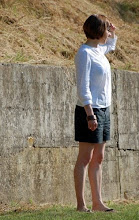The ultimate object of design is not artifacts, buildings, or landscapes, but human minds...
…The education of all design professions ought to begin in the recognition the architecture and landscapes are a kind a crystallised pedagogy that informs well or badly, but never fails to inform. Design inevitably instructs us about our relationships to nature and people that makes us more or less mindful and more or less ecologically competent.
…If it is not to become simply a more efficient way to do the same old things, ecological design must become a kind of public pedagogy built into the structure of daily life. ... The goal of ecological design is to calibrate human behaviour with ecological realities while educating people about ecological possibilities and limits.
…When we design ecologically, we are instructed continually by the fabric of everyday life - pedagogy informs infrastructure which in turn informs us.
David Orr, Architecture, ecological design, and human ecology, in The Green Braid
The challenge of resource scarcity draws into sharper focus what we choose to construct, the manner in which we choose to construct it, and the social aim towards which it is directed. How can we design buildings, systems, landscapes and products which increase our ecological literacy? How can designers and architects employ permaculture principles to enable authorities, businesses and local residents to become more mindful and ecologically competent throughout each design project?


No comments:
Post a Comment